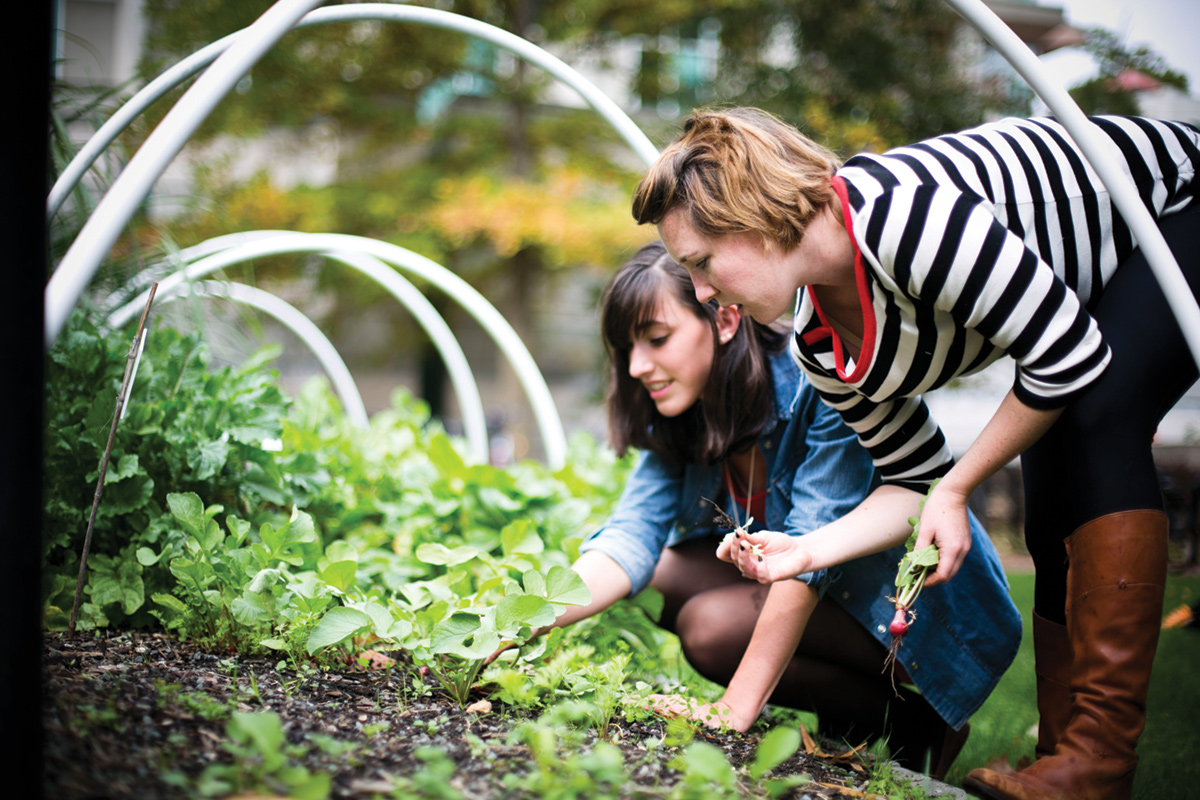Secret Gardens
More than buildings grow on Emory's campus

Walking or driving the always-busy Emory perimeter, one might never guess that the Druid Hills campus is home to active, thriving gardens—not just one or two, but five.
With roots in Emory’s Office of Sustainability Initiatives, the Educational Gardens Project was created to offer students, faculty, and the wider community an opportunity to engage in local, sustainable food production. Three of the gardens are adjacent to professional schools—the School of Medicine, Rollins School of Public Health, and Candler School of Theology. A fourth garden is on Asbury Circle at the intersection of the Cox Hall Bridge, across from the back of Emory University Hospital, and the fifth garden is by the Depot.
Sam Boring, Educational Gardens coordinator, says the plots offer a cornucopia of vegetables and fruit, such as kale, collard greens, bok choi, turnips, radishes, broccoli, cilantro, basil, eggplant, tomatoes, peppers, melons, watermelons, beans, squash, corn, potatoes, sweet potatoes, strawberries, and blueberries.
There’s kohlrabi in the Depot and Rollins gardens for an exotic but healthful flair, and the School of Medicine garden has an apple tree and a fig tree. The Depot garden yielded a big sweet potato crop during the summer growing season, and all of the gardens grow herbs, including sage, rosemary, and thyme. Starter plants and seedlings often come from the Oxford Organic Farm.
The Emory gardens are tended by volunteers from across the University, including students, faculty, and staff. Guided by designated garden leaders, anyone who’s interested can help out—and be rewarded for their efforts.
“All of the produce that we grow goes to the people who work in the gardens,” Boring says. “Generally, volunteers show up for a work day, do some garden activities, and leave with a handful of freshly harvested vegetables.”
Seems like a good reason to grab a shovel and dig in.



